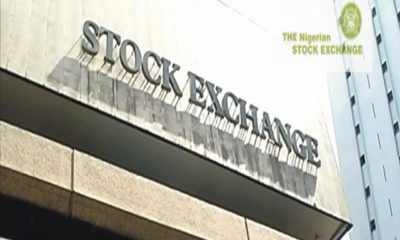- FG to Stop 5% VAT on Capital Market Transactions
The Federal Government is working on exempting the capital market from stamp duties collection and the 5 percent Value Added Tax (VAT) started on July 25, Vice President, Prof. Yemi Osibanjo, disclosed this at the Awards Night of the Association of Issuing Houses of Nigeria in Lagos.
The former Minister of Finance, Dr. Ngozi Okonjo-Iweala, had previously exempted the capital market in 2014 for five years to lure investors into the country and boost trading activities in the sector.
However, five years later nothing has really changed in the sector, compeling the Federal Government to start working on another exemption program to sustain capital inflow amid falling stock exchange market.
The Nigerian Stock Exchange market has dropped more than 11 percent year-to-date despite assurance from President Muhammadu Buhari and the listing of MTN Nigeria and Airtel Africa shares.
Experts have warned that charging 5 percent VAT on capital market transactions at a period of weak sentiment would hurt activities and new investment. They, therefore, requested for government intervention to stimulate and encourage participation in the capital market.
Vice President, Yemi Osibanjo, said: “We have commenced work on other aspects of the Capital Market Master Plan Implementation Council’s requests that require government intervention.
“We will be collaborating with many of you in the capital market community to successfully address them. My office is actually represented on the CAMMIC. I will, therefore, be receiving periodic reports on suggestions to further strengthen our support of your efforts and the market as a whole.
“We all desire a capital market that will broaden access to economic prosperity by enabling the emergence of financially responsible citizens, accelerating wealth creation and wealth distribution, providing capital to small and medium scale enterprises, and catalysing housing finance.”
The Vice President later said VAT and other issues were being discussed and that a resolution would be announced very soon.
Osinbajo said, “We see the capital market as an important driver of our growth agenda and we will continue to collaborate with the capital market community to support its efforts to positioning our market to where it should be.
“This administration, and especially my office, has supported the 10-year Capital Market Master Plan implementation initiatives since inception in 2015.
“The AIHN is an important player in the Nigerian capital market and I commend its members for directly contributing to the economy by aggregating the much-needed funding to support entities in the private and public sectors.”


 Forex3 weeks ago
Forex3 weeks ago


 Naira2 weeks ago
Naira2 weeks ago
 Billionaire Watch2 weeks ago
Billionaire Watch2 weeks ago






 Naira3 weeks ago
Naira3 weeks ago






 Naira2 weeks ago
Naira2 weeks ago


 Naira1 week ago
Naira1 week ago




 Naira4 weeks ago
Naira4 weeks ago






 Naira1 week ago
Naira1 week ago


















